9/11(Wed.) am9:00~12:00
Moderator
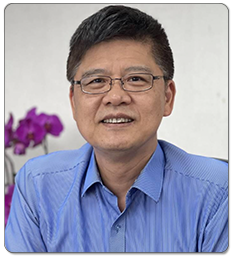
Deputy Director, Water Resources Agency, Ministry of Economic Affairs
Hung-Pu Huang
Mr. Huang was in charge of several important water resources engineering plans, such as constructions of Hushan Reservoir , Niaozueitan Artificial Lake, and some reservoir renewal projects. He also developed the regulations and systems of emergency management during drought in Taiwan and involved in the Shihmen Reservoir Remediation Project.
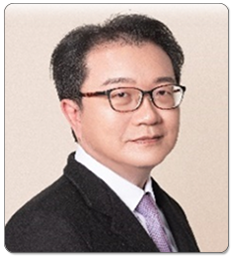
Vice President, National Taiwan Ocean University
Cheng-Yu Ku
Professor Cheng-Yu Ku is a distinguished professor in the Department of Harbor and River Engineering at the National Taiwan Ocean University (NTOU). Professor Ku is the author of more than 75 SCI articles. In his 75 SCI articles, Professor Ku has 22 articles published in ranking top 10% journals and 51 articles published in top 30% journals. ResearchGate reveals that Professor Ku's research profile places him within the top 8% of scientists globally, in the field of civil engineering, he is ranked within the top 5% of scientists worldwide. Professor Ku Served as Editorial Board Member in two international journals. He also served as Guest Editor for nine Special Issues Professor Ku has made significant contributions to the establishment of a disaster prevention system. Professor Ku serves as the Review Board from 2019/1 to 2021/12 in the disaster prevention field of the Department of Natural Sciences and Sustainable Development, Ministry of Science and Technology, R.O.C. He was honored with the Project Award for Excellent Junior Research Investigators, MOST, R.O.C. in 2011~2014.
Over the past decade, he has received 2020, 2021, 2022, and 2023 Excellence Award from the ministry of the interior for Disaster Prevention and Protection Project of Keelung City.
Professor Ku received awards such as Excellent Paper Award from Taiwan Rock and Geology society, Taiwan Rock Engineering Symposium, 2018 and Excellent Paper Award, Annual Congress of Geological Society & Geophysical Society, 2018. Additionally, he was honored with the Project Award for Excellent Research Investigators from the Ministry of the Interior, R.O.C., in 2016 and 2017.
Keynote Speech
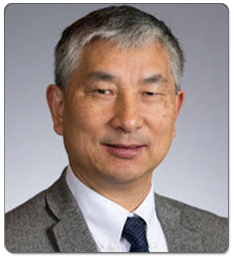
Professor, Graduate Program Director, Morgan State University
Zhu-Ping Sheng
Dr. Zhuping Sheng is a professor in Civil Engineering and Graduate Program Director in CEE at Morgan State University, Maryland. He is a registered Professional Engineer, certified Professional Hydrologist, and Fellow of American Society of Civil Engineers (ASCE). Prior to his position at Morgan, Dr. Sheng has served as Director of Texas A&M AgriLife Research Center and professor. Dr. Sheng is recognized as an international leader in conjunctive management of water resources, transboundary aquifers, managed aquifer recharge (MAR), and aquifer mechanics. Most impactful efforts of his research include the development of framework to explore interactions of atmospheric water, surface water, and groundwater, and geohazards (land subsidence and landslides) mitigation. He has served in leadership roles in professional societies, such as ASCE, American Water Resources Association and American Institute of Hydrology. He is currently serving as the President of Chinese American Water Resources Association.
The title of speech
Managed Aquifer Recharge System: a powerful tool for adapting climate change with sustainable water resources
Short abstract of speech
Managed Aquifer Recharge evolved from a single purpose (artificial recharge to prevent land subsidence) to multiple facet system for conjunctive management of regional water resources, meeting peak demands, drought and emergency. This presentation will provide an overview of state of science, from planning to design and to operations. Case examples with different approaches, such as surface infiltration, aquifer storage recovery well, deep well injection and others, will be used to demonstrate challenges and opportunities for MAR in addressing future water supplies in adapting climate changes and mitigating geohazards. It will also provide a briefing on development of ASCE standard guidelines for MAR. Recommendations for future research will also be discussed.
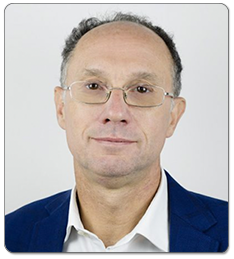
Chair,UNESCO-IHP 'Land Subsidence International Initiative - LaSII'
Pietro Teatini
Pietro Teatini is associate professor in Hydrology and Hydraulic Engineering at the University of Padova, Italy. He received his MSc degree in Hydraulic Civil Engineering with honors in 1991 at the University of Padova, Italy. In 1994 he received the International Award "Paolo Gatto'', Accademia Nazionale dei Lincei, for the modeling of the aquifer system underlying the Venice Lagoon. He is chair of the IAHS/UNESCO-IHP "Land Subsidence International Initiative - LaSII" and member of the Steering Team "Regional Sea Level Change and Coastal Impacts" UNESCO - World Climate Research Programme. His research interests concern modelling geomechanical issues related to fluid withdrawal/injection from/into the subsurface. He also works on modelling land subsidence due to peat oxidation and natural consolidation, which are typical processes on natural coastlands (deltas and wetlands). He has carried out several studies on aquifer management and land subsidence-related issues in different parts of the world (Italy, Mexico, China, Egypt, Kazakhstan, Argentina, Iraq, Vietnam, and Sierra Leone). He is the author and co-author of more than 125 publications in international journals and of the book "Venice Shall Rise Again. Engineered Uplift of Venice through Seawater Injection" published by Elsevier. His current H-index is 40 (Google Scholar).
The title of speech
Understanding and modelling land subsidence to develop proper early warning management
Short abstract of speech
Land subsidence in lowlying coastal plains is caused by the superposition of various processes of both natural and anthropogenic origin. Key contributors include autocompaction of Holocene deposits associated to sedimentation decrease, drainage of soils rich in organic matter to favour crop production, groundwater pumping from confined aquifer systems to agricultural activities and freshwater supply to even more growing urban centers, and hydrocarbon production from deep reservoirs.
Understanding the peculiarities of these processes and employing appropriate modeling frameworks is crucial for developing effective adaptation, mitigation, and prevention strategies. This presentation will provide a comprehensive review of these processes and concepts, illustrated with several exemplary case studies from around the world.
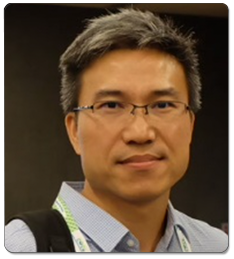
Distinguished Professor & Director, Center for Environmental Studies, Graduate Institute of Applied Geology, National Central University
Chuen-Fa Ni
Chuen-Fa Ni received his Ph.D. at the Department of Civil and Environmental Engineering, Michigan State University, MI, USA, in 2005. He is a licensed Hydraulic Engineer with industrial working experience from 1999 to 2001. He joined the Graduate Institute of Applied Geology, National Central University (NCU), in 2007 and became a full professor at NCU in 2016. NCU awarded him the Distinguished Professor Award in 2020. He has published over 70 refereed papers, including book chapters, technical notes, and discussions. His research interests include numerical modeling of flow and contaminant transport in porous media and fractured rocks, stochastic approaches for uncertainty analyses and inverse modeling, laboratory and field experiments to characterize hydrogeological properties cross-scale, seawater intrusion and reactive transport in coastal aquifers, land subsidence monitoring and coupled hydro-mechanical modeling, and development of web platforms for groundwater modeling and data analysis.
The title of speech
Groundwater recharge under a changing environment in Taiwan
Short abstract of speech
The average annual rainfall in Taiwan accounts for 2500 mm. However, most rain falls in the monsoon season between May and September. Groundwater has become an essential alternative water resource for drought seasons in central and southwestern Taiwan. With the extreme weather conditions in recent years, the sustainable use of groundwater resources must balance environmental impact and water resource demand. The Input/Output (I/O) of a groundwater basin is crucial to managing groundwater use. In the I/O issues, natural and artificial recharge play an essential role in judging groundwater use.
In this talk, I’ll briefly review the current state of climate conditions and introduce the critical I/O issues of the groundwater systems in Taiwan. The technical solutions to quantify the groundwater recharge will be covered in the discussion. There are alternative techniques to enhance groundwater recharge in the world. Introducing the cases of groundwater recharge in Taiwan could help the audiences exchange ideas for possible solutions.
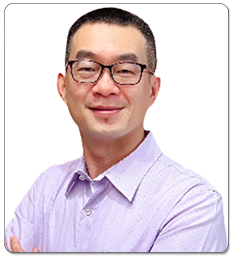
Chairman, Green Environmental Engineering Consultant Co. Ltd.
Wei-Chia Hung
Professor Hung Wei-Chia previously worked at the Industrial Technology Research Institute and is currently a committee member of the United Nations Committee on Land Subsidence Prevention. He also holds positions as a board member in several professional organizations and owns multiple patents. He has primarily participated in nationwide land subsidence monitoring projects, including those of the Taiwan High-Speed Rail and the Water Resources Agency.
The title of speech
Research and development of multi-sensor observation technology applications
Short abstract of speech
During 1992-2023, groundwater overexploitation had caused large-scale land subsidence in Taiwan. How to effectively monitor land subsidence has become a major issue in Taiwan.
In this presentation, I’ll introduce the multiple sensors monitoring system including GNSS, Multi Temporal InSAR (MT-InSAR), 1000 KM levelling networks, multi-layer compaction monitoring wells, extensometers and groundwater monitoring wells to monitor the extent of land subsidence and study its mechanism. I’ll also talk about how to use Internet of Things (IoT) technology to control and manage the sensors and further develop big data processing to analyse the subsidence monitoring data, which makes the land subsidence monitoring more efficient and intelligent.